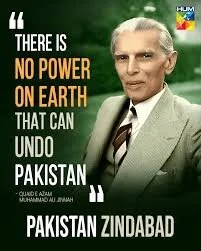How Pakistan has outsmarted India on world stage
Despite New Delhi’s diplomatic blitz, Islamabad has emerged stronger on the international stage
By MNS
OPINION, June 6, 2025
IT was supposed to be a campaign that would isolate Pakistan. Seven delegations of Indian lawmakers fanned out across world capitals last month, carrying a singular message: Pakistan is a state sponsor of terrorism. The timing was strategic — just after a military confrontation between the two nuclear-armed neighbours in which India expected global support and regional dominance.
But instead of diplomatic isolation, Pakistan has achieved a string of remarkable successes — on the political, economic, and strategic fronts. From chairing vital UN committees on terrorism to securing billions in investment and development loans, Islamabad has emerged stronger than ever before, according to many analysts.
Global recognition
In what can only be described as a diplomatic coup, Pakistan was appointed Chair of the United Nations Security Council’s Taliban Sanctions Committee and Vice-Chair of its Counter-Terrorism Committee for the year 2025. These appointments, involving oversight of compliance with terrorism-related sanctions, would seem unlikely for a country that has frequently been accused of sponsoring terrorism by a neighbour. Yet, the appointments symbolise something deeper: a growing international confidence in Pakistan’s ability to engage constructively on global security.
Diplomatic win in the Gulf
Just days after one of India’s delegations lobbied Kuwait to downgrade ties with Pakistan, the Gulf state took a dramatically opposite step: lifting a 19-year ban on visas for Pakistani citizens. Work, family, tourist, and commercial visas have all resumed — reopening a vital corridor for labour migration and bilateral trade. The move highlights Pakistan’s growing credibility in the Gulf and a quiet rebuke to India’s overt pressure tactics.
US travel bans
While the United States has issued a new travel ban list that includes names of 12 countries, Pakistan’s name is absent from it. In past years, Islamabad would have braced for inclusion on such lists. But this time, Washington’s omission is widely seen as an acknowledgment of Pakistan’s cooperation in regional security and a sign of shifting strategic calculations in South and Central Asia.
New allies and renewed partnerships
Pakistan’s diplomats didn’t just neutralise Indian lobbying — they opened doors to deeper regional alliances. At the 2025 Lachin Summit, Pakistan, Turkey, and Azerbaijan declared a new phase of strategic partnership, covering everything from defence to digital development.
Even Russia, historically close to India, took a more balanced approach this year — opting for quiet engagement with both nations rather than siding outright with New Delhi.
Meanwhile, China reinforced its support under the China-Pakistan Economic Corridor Phase II, helping position Pakistan as a key player in regional infrastructure and connectivity.
Pakistan and Afghanistan have also begun mending relations that had been strained for several years. By appointing ambassadors to each other’s capitals, the two neighbours aim to build stronger ties than ever before.
Multilateral confidence in Pakistan’s economy
If India expected international lenders to back its narrative, the response from global financial institutions suggested otherwise.
· The Asian Development Bank pledged $2.1 billion in loans for energy, water, and digital governance projects.
· The World Bank approved $1.8 billion in support for education, health, and institutional reform.
· The International Monetary Fund (IMF) maintained its technical support programme and praised Islamabad for sticking to fiscal reforms. It also released a tranche of about $1 billion just prior to the four-day war between Pakistan and India.
This financial confidence contrasts sharply with predictions of economic collapse often circulated in international media.
Renewed global interest
At a time when capital is fleeing emerging markets due to inflation and instability, Pakistan is attracting long-term investment pledges:
· Saudi Arabia reaffirmed a $5 billion commitment, including a landmark oil refinery in Gwadar and mineral development.
· China signed $3.6 billion worth of agreements in agriculture, tech parks, and manufacturing.
· The UAE and Qatar expressed interest in renewable energy and port infrastructure in Karachi and Gwadar.
· Germany and South Korea are entering development partnerships in technical education and clean energy.
Such investment pledges this year demonstrate not only economic potential, but international faith in Pakistan’s strategic importance.
The narrative seems to have changed
India’s attempt to frame Pakistan as an international pariah has, at least for now, faltered. Instead of isolation, Islamabad has emerged from the shadows of diplomatic attack with new allies, strengthened institutions, and a steady economic lifeline. In an increasingly multipolar world, where power is shared rather than concentrated, Pakistan’s ability to build diverse alliances and secure multilateral backing suggests a shift in how the world sees the country.
